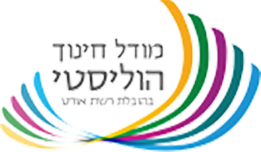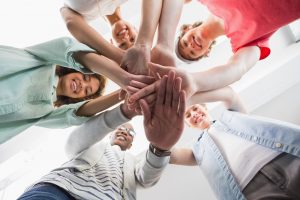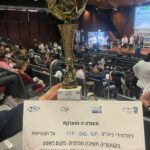The holistic model defines innovation in the development and assimilation of mapping and accuracy of the educational situation, in which the student is at the center. The model for holistic education sees and treats the whole person consisting of body, mind, spirit, influenced by environmental (physical and social) and hereditary conditions. In parallel with the examination and educational-pedagogical intervention that includes academic achievement, dropout, motivation, ability to continue learning and more, the model addresses the issue of wellness, which connects to the values of health, optimism, personal satisfaction, hope and happiness. The holistic education model creates a systemic connection to the municipality and strengthens the educational continuum by creating a common and uniform pedagogical language from 1st to 14th grade.

Life Skills Program- Strengths, Entrepreneurship, Creativity, Skills
Understanding Processes in the Future Employment World and Providing Individual Tools for Suitable Self-Management
In 21st century reality, the employment world consists of different stages which require various skills and qualifications. There is a growing need to study the requirements of the changing market, the possibilities it holds and the required skills. It is necessary to understand the career world, and to receive preparation for an independent financial self-management, in order to create a future prospect. The Israel Sci-Tech Schools Network developed for its pupils a three-years program, which focuses on identifying strengths and skills and promoting them, while also training for emotional self-regulation and for setting goals. The program teaches concrete skills for a changing and complex future, such as financial education, entrepreneurship skills and understanding processes in the future employment world. It also provides tools for self-management in a world which lacks certainty (including, among others, introduction to the academy, to mentors and to the industry). Towards the conclusion of the program, each pupil will participate in a communal project, in which they will be able to share with the community the main ideas they learned as part of the program.
Positive Psychology as An Educational Concept
The Israel Sci-Tech Schools Network Leads and Develops Practices that Promote Wellbeing, Resilience and Positive Communication in Schools
The guiding principle underlying educational methodologies based on educational/positive psychology, is that when pupils believe they are headed towards an enabling (hope and optimism) future, they become curious and full of excitement when facing whatever comes their way. These components build pro-active adults, who are ready to face difficulty, frustration and having to make an effort, and to cope with them. Research shows that positive emotions in learning improve perception, memory, problem solving and creativity (B. Fredrickson).
The unit for positive psychology within the Network adapts the principles to the education system and develops programs to implement practices for the promotion of welfare, resilience and positive feelings in learning.
“Hope and Motivation” is a program based on Snyder’s hope theory and on Antonovsky’s sense of coherence. It trains the pupils to become pro-active, set goals, acquire learning strategies and build the teacher-pupil relationship.
“Positive as a Way of Life” is a program for the teachers, about the educational principles of positive psychology: identifying and developing strengths, gratitude and emotional self-regulation.
“Playdagogy“: teaching strategies which support positive emotions, and developing life skills: cooperation and sharing, self-guidance in learning, strengths, play-based learning, etc.
“I’ve got sunshine in my pocket“- a yearly program for the pupils, teaching practices for expending happiness and emotional self-regulation. As an educational system our goal is to combine our obligation to promote an enabling environment, our responsibility to strengthen personality traits leading to emotional welfare, but certainly, at the same time, to strengthen and develop learning-supporting tools.
“Round Table Discussions“: thinking about manners of expending the “life skills” studies and even to dedicate a full academic year to them, so that the practices of setting goals, emotional self-regulation, meaningful activities and mindfulness will be a major part of them.




